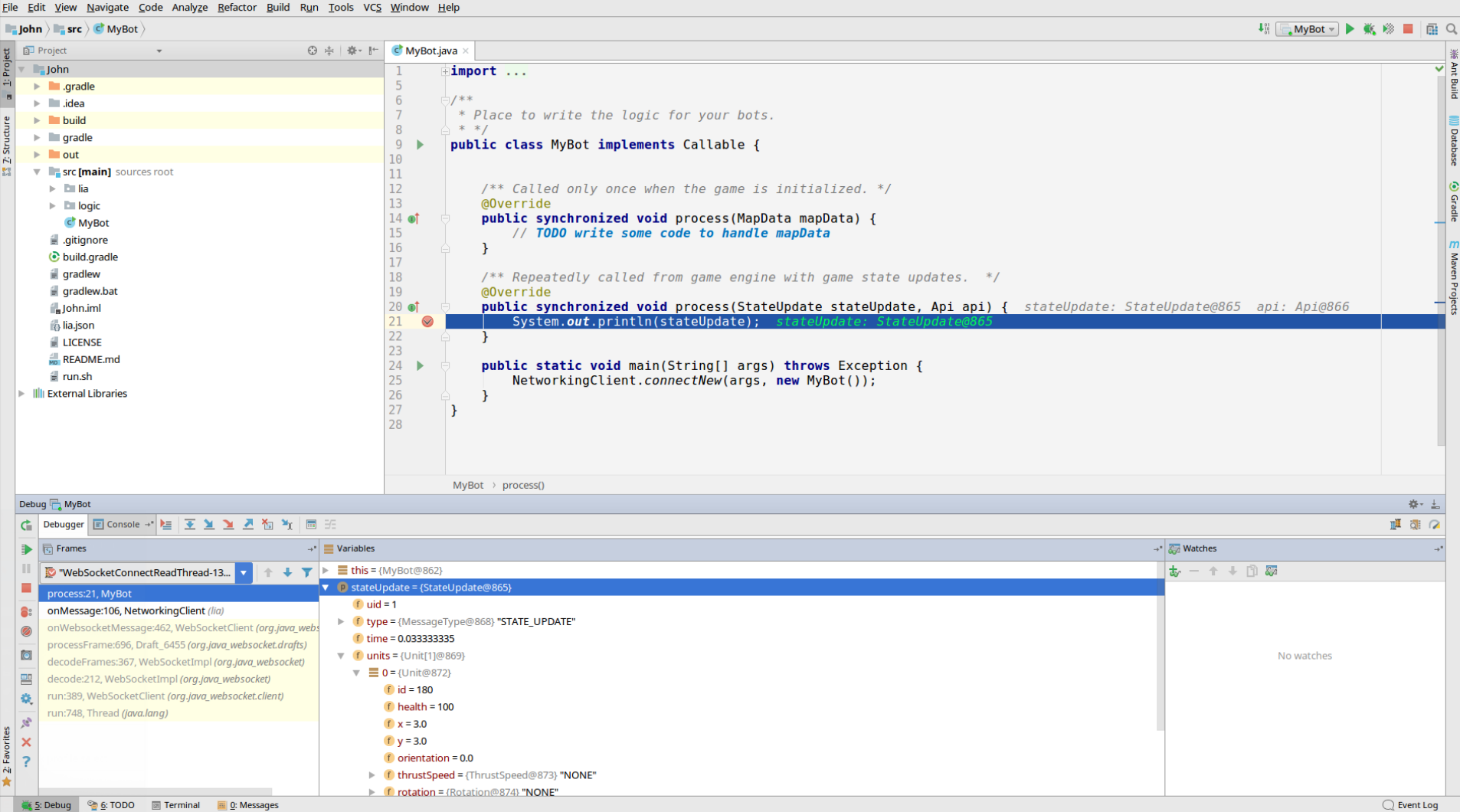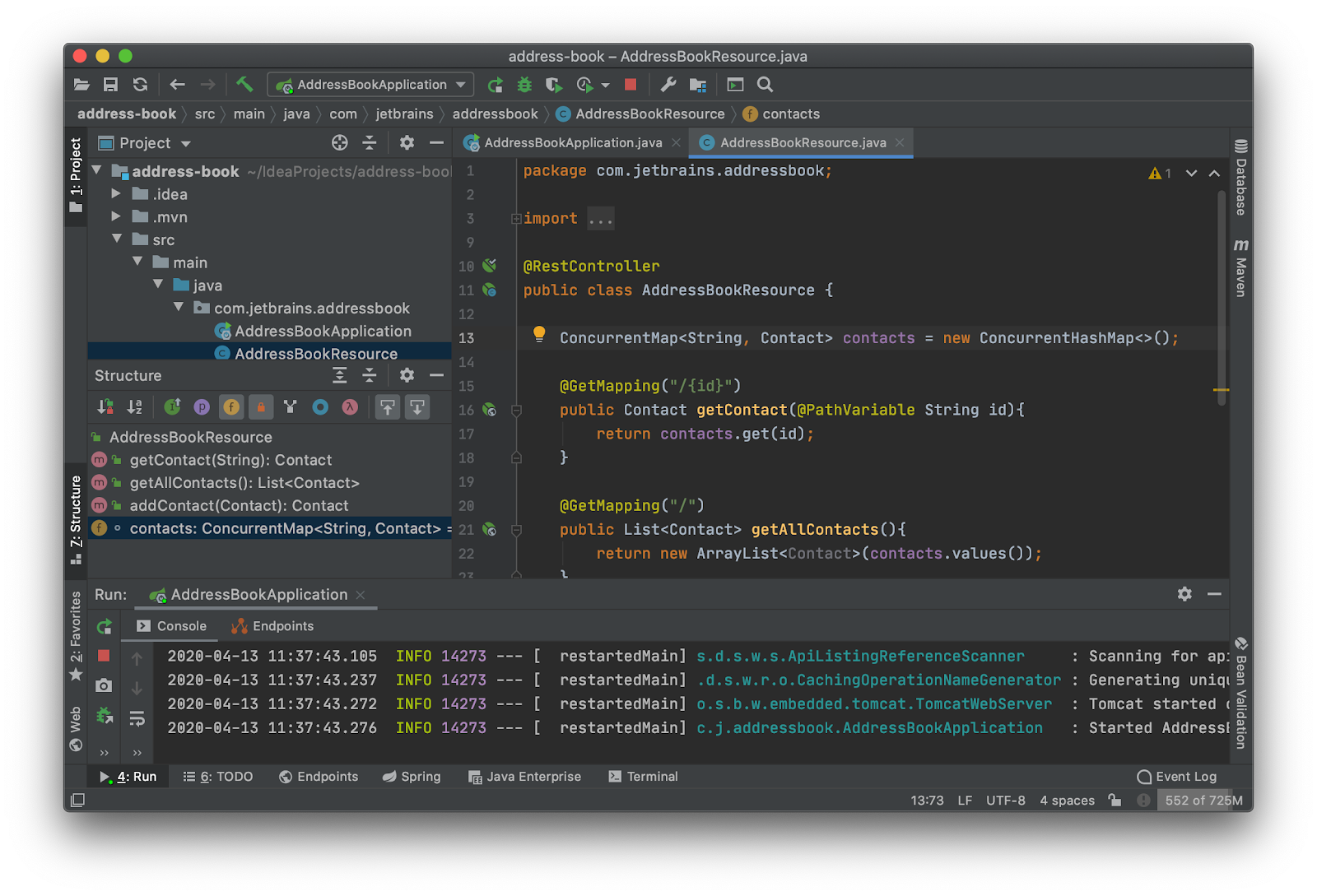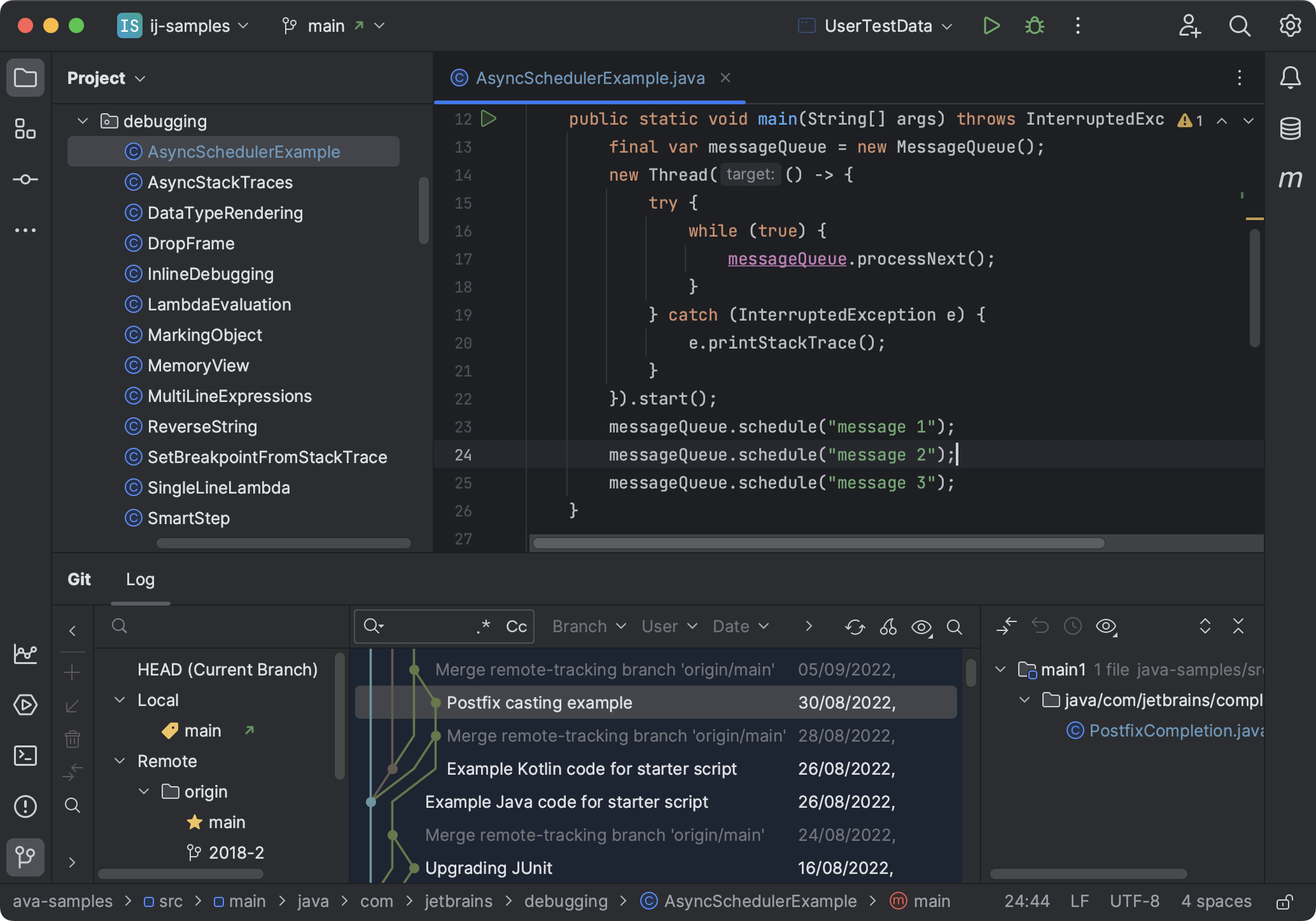IntelliJ IDEA earned its reputation through relentless focus on developer productivity and code quality. After 20+ years of development, it's become the de facto standard for Java development and the primary IDE for Kotlin—JetBrains' own language.
Intelligent Code Assistance That Actually Works

The shit that sets IntelliJ apart isn't marketing fluff—it's the deep code analysis engine that understands your entire codebase. When you hit Ctrl+Space, you're not getting dumb text completion like VS Code's "here are 50 random JavaScript functions." You're getting context-aware suggestions that know what variables are in scope, what methods are available, and what makes sense at that exact cursor position without requiring seventeen different plugins.
The refactoring engine is where IntelliJ crushes the competition. Extract method? Rename class across 500 files? Move package structure? These operations that would take hours of careful find-replace in other editors happen instantly with zero fuckups. I've seen developers move from Eclipse spend the first week thinking it's too good to be true.
Real Framework Integration, Not Plugin Afterthoughts
Spring developers know the pain: debugging a web request that hits three @Service classes, two repositories, and a message queue, then mysteriously returns null because some genius configured AspectJ wrong. IntelliJ IDEA 2025.2 includes the new Spring Debugger plugin that actually lets you step through Spring's proxy hell without throwing your laptop out the window.
The IDE understands Spring's dependency injection, JPA entity relationships, and REST endpoint mappings. Click on a @RequestMapping annotation, and it shows you every place that endpoint gets called. Try doing that with grep.
Framework support extends beyond Java: Kotlin multiplatform projects, Maven multi-module builds, Gradle composite builds—IntelliJ handles complex project structures that make VS Code shit itself.
Database Integration That Doesn't Suck

Most IDEs bolt on database support as an afterthought. IntelliJ's database tools are built into the core experience. Connect to your PostgreSQL instance, and the IDE understands your schema. Write a JPQL query, and you get autocompletion for table columns and entity properties.
The 2025.2 release adds smarter database workflow enhancements. When you're debugging a Hibernate query that's performing like garbage, you can see the generated SQL, execution plan, and results all in one place.
Performance That Scales
Here's where IntelliJ's engineering shows. I've worked on codebases with 2M+ lines of Java, and IntelliJ indexes the whole thing without choking. The 2025.2 release improved indexing performance further—projects that took 10 minutes to index now take 3-4 minutes, assuming your SSD doesn't shit itself.
Memory usage is intelligent. Unlike Eclipse's tendency to leak memory like a sieve until you restart every two hours, IntelliJ manages heap space effectively. Sure, it'll eat 4GB on a big project, but it won't gradually consume all your RAM then crash during a critical deployment. The JVM it runs on is tuned specifically for IDE workloads, not generic server apps.
The Build Tool Reality Check
Maven 4 support landed in 2025.2, along with native Bazel support through the official JetBrains plugin. If your company uses Bazel for polyglot builds, IntelliJ is now the only IDE that handles it properly without hacky workarounds.
Gradle builds get first-class treatment. The IDE understands Gradle's lazy configuration, composite builds, and plugin DSL. When your build.gradle.kts file has compilation errors, you see them immediately—not after running ./gradlew build and watching it fail.
Version Control That Doesn't Hate You

Git integration in IntelliJ is what Git tooling should be everywhere. The three-way merge tool actually helps resolve conflicts instead of showing you cryptic diffs. Blame annotations, branch visualization, and interactive rebase all work without switching to the terminal.
The 2025.2 release added better handling for large repositories. If you're working with monorepos that have thousands of commits, operations that used to freeze the UI now run in the background.
This isn't just another code editor with plugins. IntelliJ IDEA is purpose-built for the complexity of real software projects.

